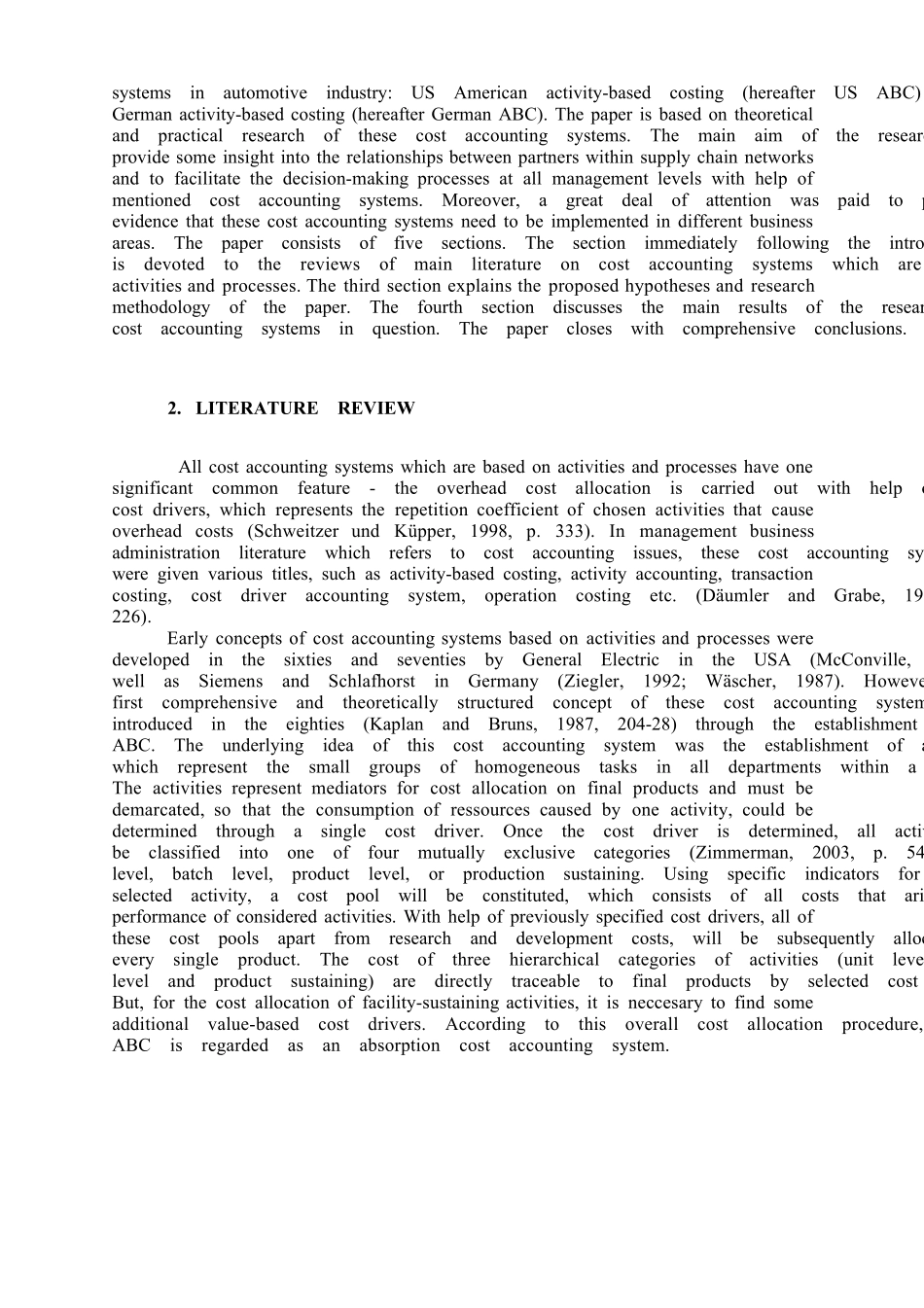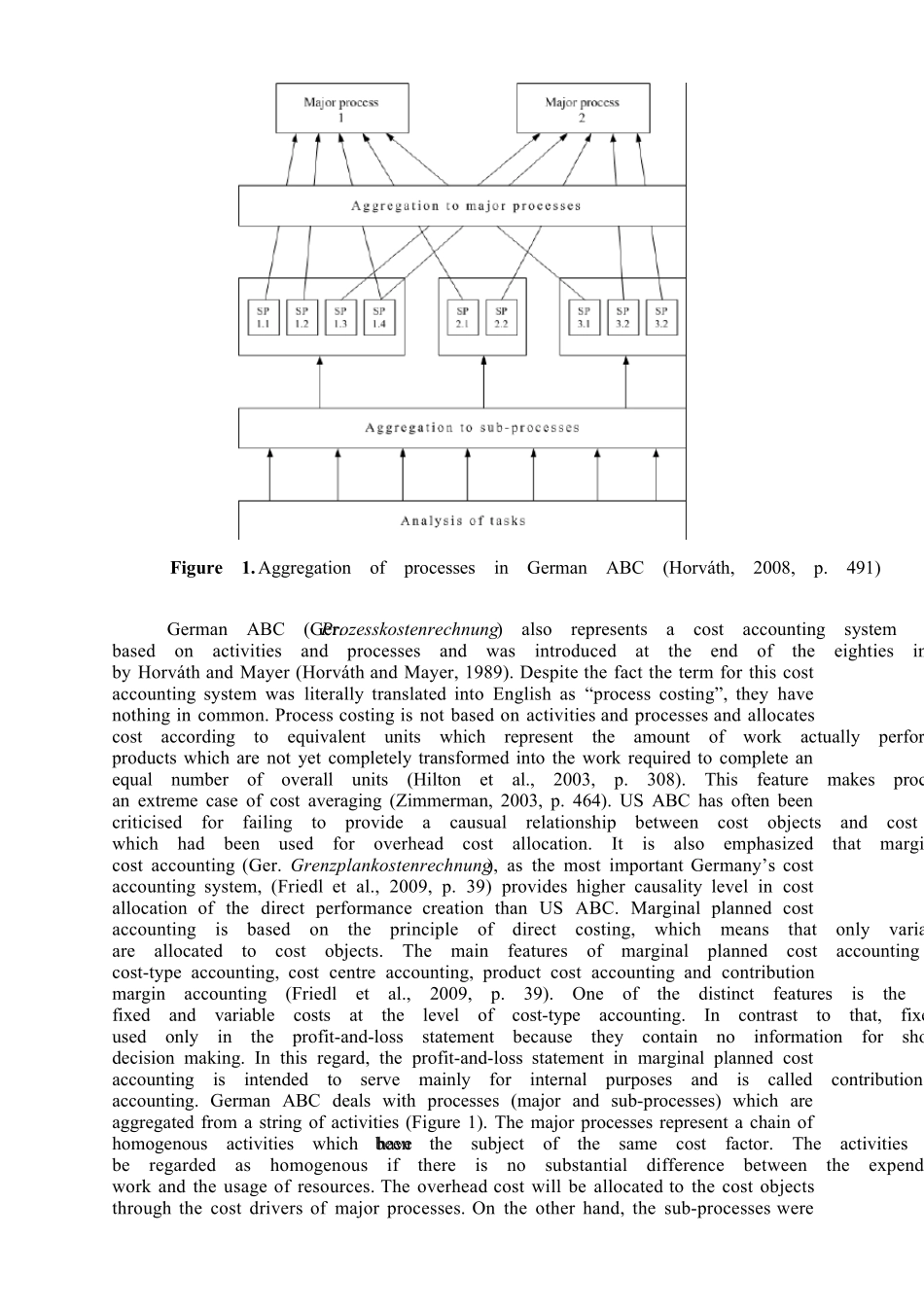Vojislav Marjanović∗ UDK 657.47:629.331>(73:430) Jelena Gavrilović∗∗ Nenad Stanić∗∗∗ US AMERICAN VERSUS GERMAN ACTIVITY-BASED COSTING. EFFECTS ON BUSINESS DECISIONS MANAGEMENT IN THE AUTOMOTIVE INDUSTRY ABSTRACT This paper seeks to describe the role that activity-oriented cost accounting systems, i.e. US American and German activity-based costing, play in the establishment of supply-chain-networks in the modern automotive industry. These cost accounting systems are the subject of analysis for two reasons: they relatively successfully describe the causality principle between cost drivers and cost objects and represent two different approaches of cost calculation within the activity-oriented concept. Also, the paper attempts to show that the efficiency of these systems is contingent on the value chain activity to which the systems were applied. Although based on identical conceptual frameworks, these systems do not have the same cost allocation purposes in automotive industry. Keywords: cost accounting, activity-based costing, automotive industry, supply chain network JEL Classification: M41 , M49 1. INTRODUCTION The automotive industry is an important component of the economy due to its organisation complexity. Furthermore, it is an extremely capital intensive branch of industry which employs a great number of people and represents a leader in terms of technical innovations. In the past two decades this industry has been characterised by a series of significant processes, two of which have gained great importance. Firstly, there is a strong competition for markets, which has led to a reduction in the number of stand-alone Original Equipment Manufacturers (OEMs). Secondly, due to an increasing focus on their core...


